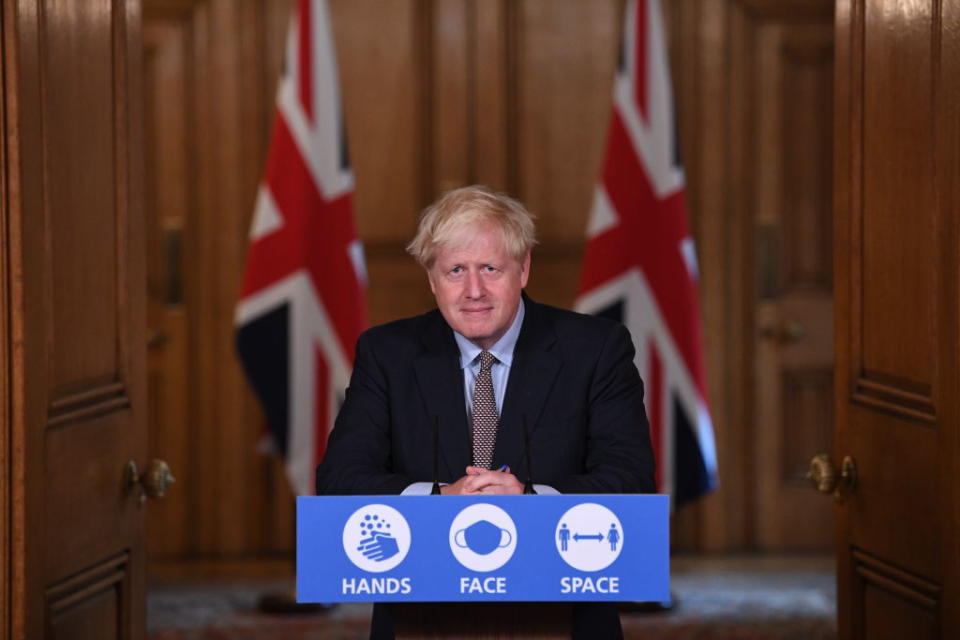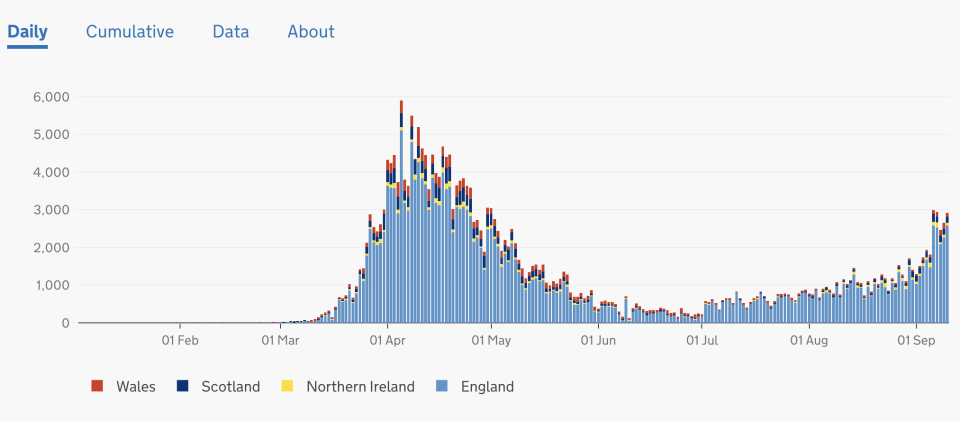How pregnancy-style COVID tests could save Christmas
Staring down the barrel of a second wave, the British Prime Minister is relying on a “moonshot” idea that he hopes can save Christmas.
Boris Johnson continues to tout the potential for technology to provide a type of “passport” for the non-infectious to mingle and attend large events and indoor gatherings such as theatres and concerts.
Speaking at a news conference this week, Mr Johnson put forth the possibility of pregnancy-style COVID-19 tests that could be used by the entire population on a daily basis to quickly determine if someone is infectious.
Unlike typical testing regimes, the rapid-turnaround tests would not tell whether a person was infected, but simply whether they were capable of spreading the virus.
“That gives you a kind of passport, a freedom to mingle with everyone else who is similarly not infectious, in a way that is currently not possible,” he told reporters Wednesday (local time).

“Our plan, this moonshot that I'm describing, will require a giant collaborative effort from government, from business, from public health professionals, scientists, logistic experts and many, many more.
“Work is under way now and we will get on at pace until we get there, round the clock.”
Mr Johnson said the scheme would be piloted in northern England from next month before being rolled out more widely and hopes it could see the country return to some form of normality by Christmas.
“Through that moonshot of daily testing – everybody gets a pregnancy-style test, a rapid turn-around test in the morning, 15 minutes later you know whether you are infectious of not,” he said.
"That's the opportunity and we're aiming for that, we're driving for that.
“Whether we are going to get things back to normal at all by Christmas, I'm still hopeful, as I've said before, that in many ways we could be able to get some aspects of our lives back to normal by Christmas.”

European countries seeing a surge in new cases
On Sunday (local time) the UK recorded nearly 3,000 new coronavirus cases, which marked the highest daily increase in cases recorded in the country since May 23. Daily new cases have continued to hover around that mark with 2,919 new daily cases recorded on Thursday, a vast majority in England.
The rise in cases prompted England to ban gatherings of more than six people, to come into effect next week, down from 30.
Privately, Mr Johnson has reportedly expressed fears the UK will see a second wave that is playing out across parts of Europe.
As cases rebound in parts of Europe, countries have recently seen single-day records in new cases similar to those seen during the spring, signalling a second wave is underway.
On Thursday France recorded 9,843 new coronavirus cases in a 24-hour period. It was an increase of nearly 900 on the previous day and its highest ever total in a single day since large-scale testing was undertaken.
Spain also saw a record-breaking rise in new daily cases this week when it recorded back-to-back days of roughly 8,900 cases on Tuesday and Wednesday (local time), before jumping to 10,764 on Thursday. Meanwhile Greece reported 372 new cases on Thursday, its highest figure since the pandemic began.
The UK has the fifth-highest COVID-19 death toll of 41,697, according to Johns Hopkins University figures on Friday.
Do you have a story tip? Email: newsroomau@yahoonews.com.
You can also follow us on Facebook, Instagram and Twitter and download the Yahoo News app from the App Store or Google Play.



